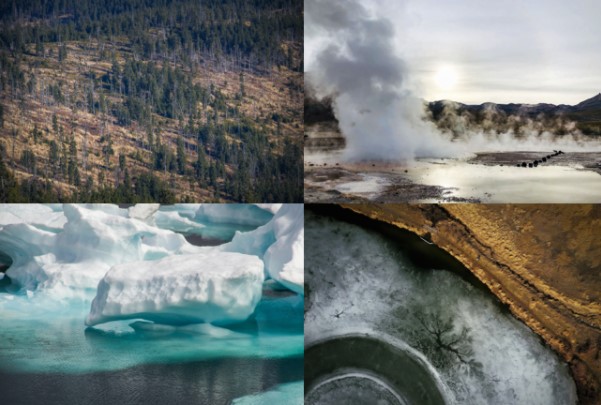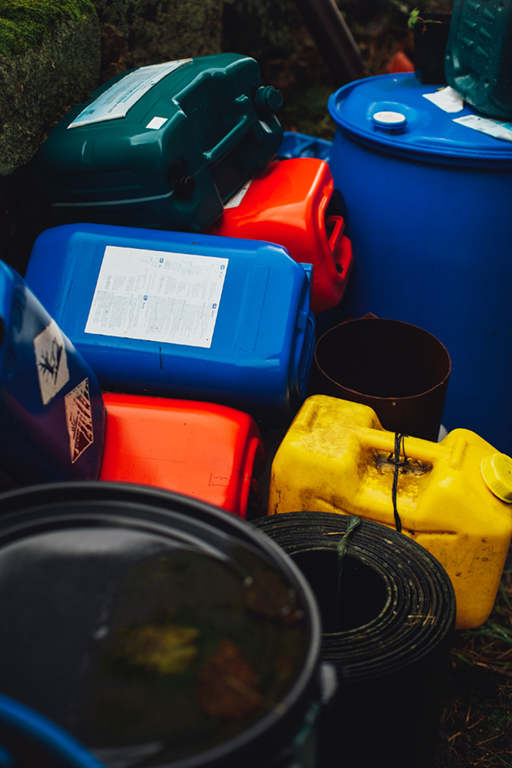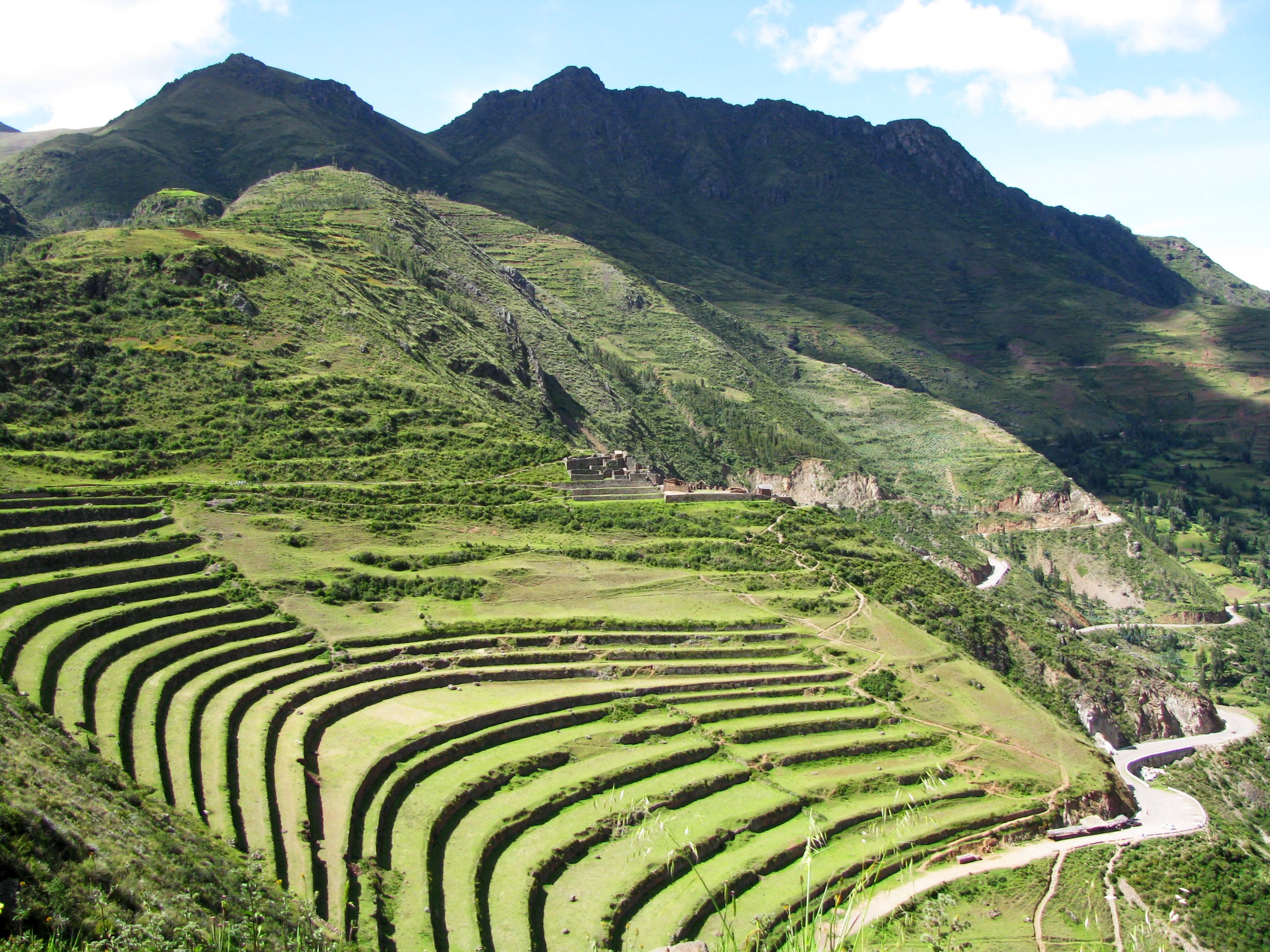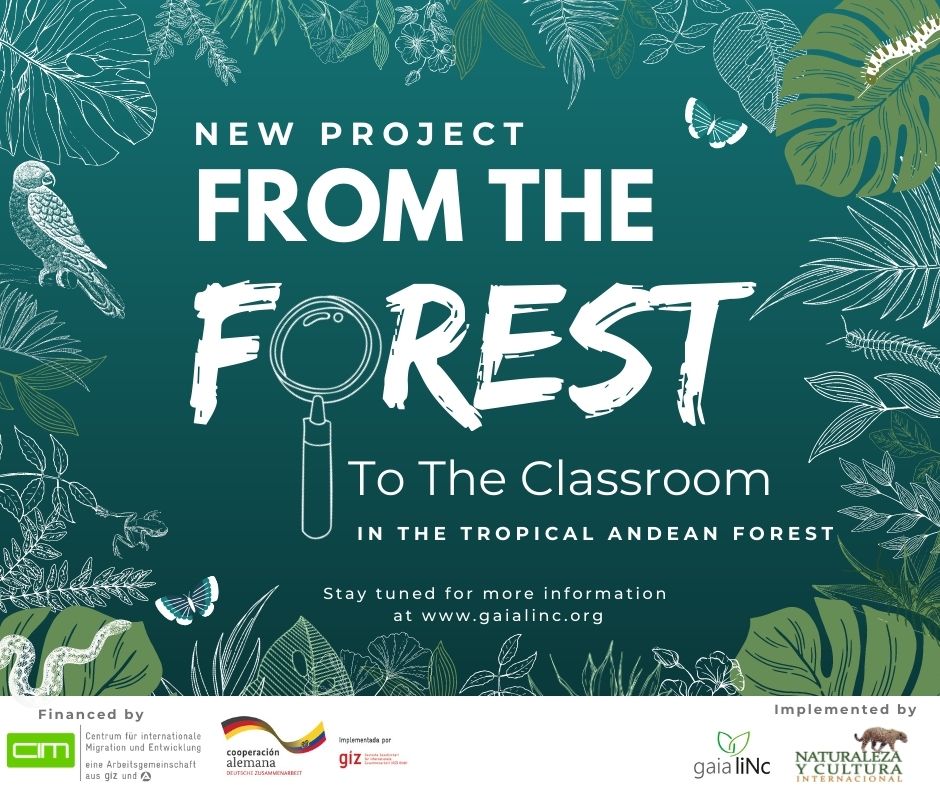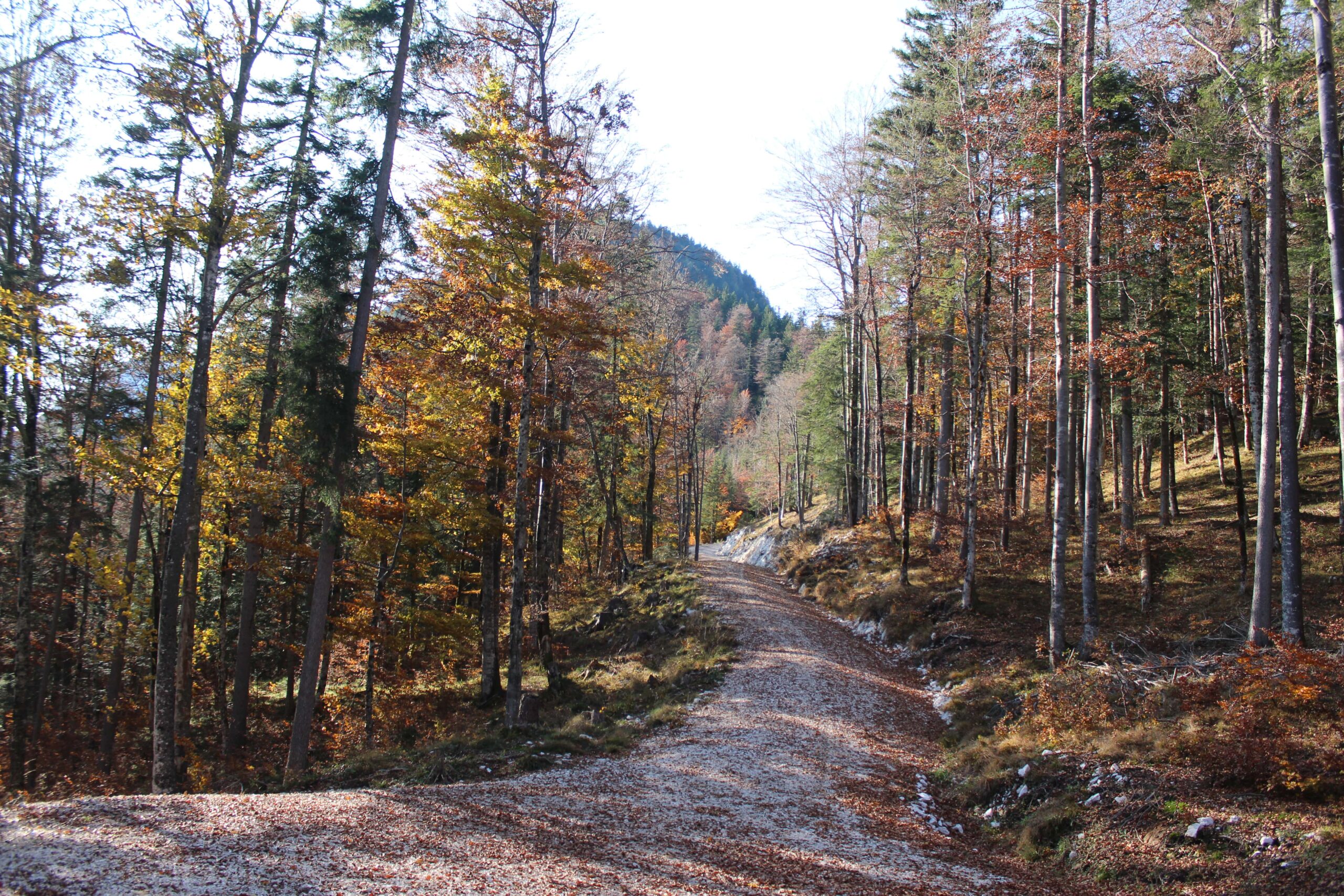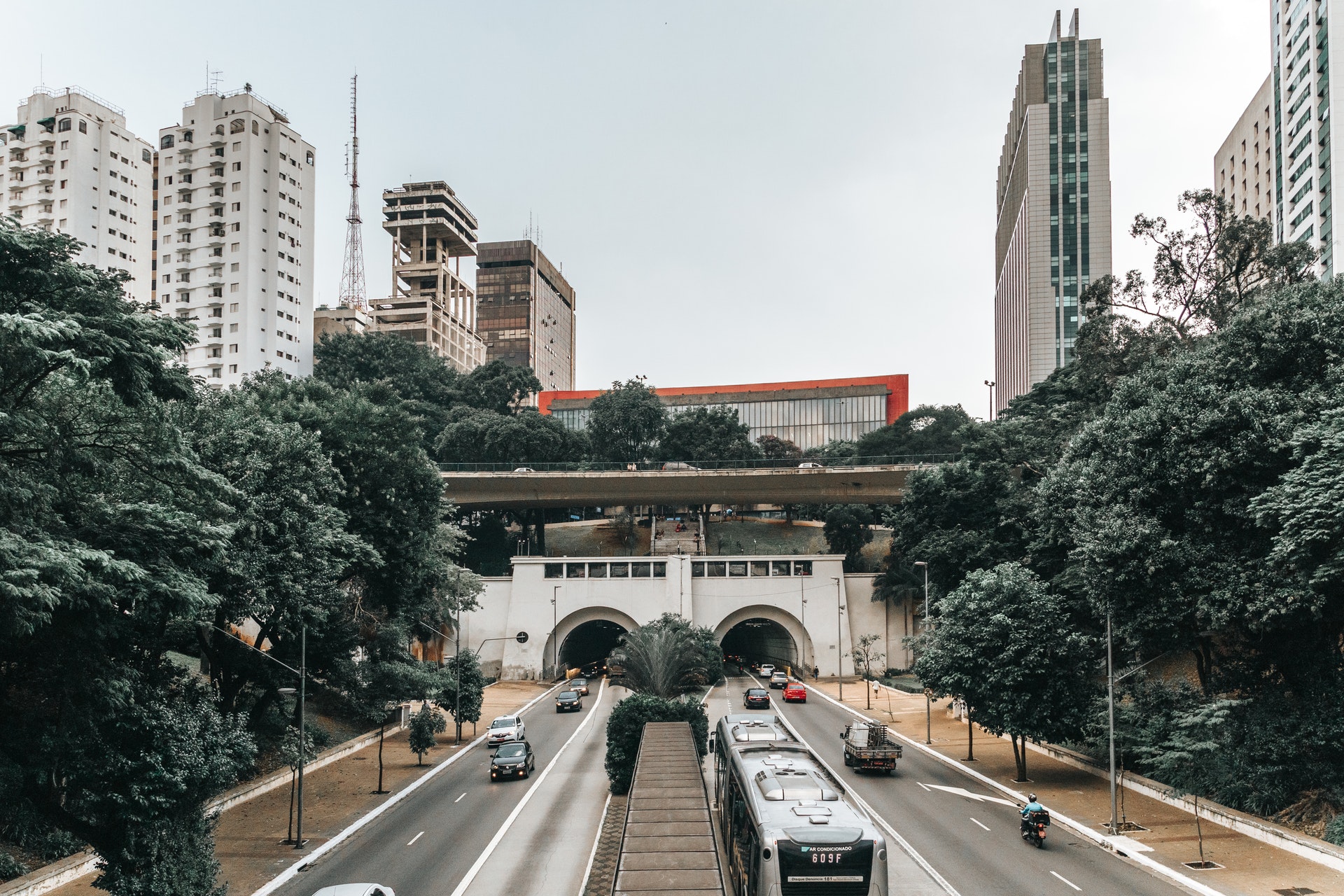News & Blog
Category
Nature-based Solutions
Nature-based Solutions in Peru:
Challenges and opportunities for the cities of the country
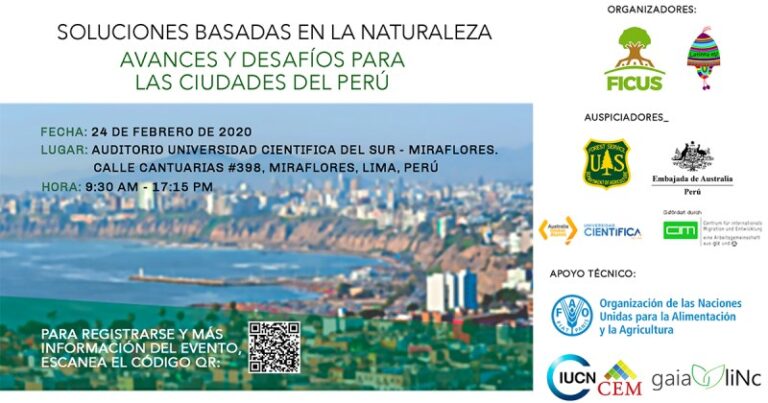
By Diego Alonso Portugal De Pino, Co-Lead, IUCN CEM Nature-based Solutions Thematic Group.
(Written and published February 8th, 2020 for the IUCN CEM Young Professionals Network.)
In 2015, together with colleagues from different fields of study, we decided to create an NGO Ficus Peru, and our objective was to promote socio-environmental projects in the city of Lima. Five years later, I find myself working on global issues within the framework of Nature-based Solutions (NbS). NbS seek, as it was intended partly with Ficus Peru, to provide solutions in a transdisciplinary approach with the collaboration of different institutions to address current societal challenges.
In the case of Peru, the country still has much to improve on environmental issues, especially if we consider its vulnerability to climate change. In other words, to focus on improving prevention, mitigation and adaptation measures to natural disasters. The ”Coastal Niño” (Niño Costero in Spanish) that occurred in 2017 ended up affecting 1.5 million people, with a balance of 162 deaths and a cost of 3.5 billion U.S. dollars in infrastructure damages. It must also be acknowledged that natural disasters will be more common in the future, and their economic, social and environmental impacts will also exacerbate.
Another factor to take into account is that Peru has a considerable number of stakeholders related to environmental issues and their work tends to overlap, as is the case with public entities at different levels of government (district, municipal, regional and national). This creates confusion for the rest of the stakeholders, and it becomes complicated and even bureaucratic to determine who is in charge of environmental competences in the country.
In this context, NbS are not effective if they are implemented alone without the consultation of other institutions, nor if there are no regulations established in the territory to guarantee their sustainability. If we look at NbS as alternatives to social problems, the current policies still favour the use of what is called grey infrastructure (retaining walls, bridges, etc.). The problem with this point of view is that it has decoupled the concept of the city from that of nature. By thinking of NbS, not only the social problems are tackled, but also the environmental ones. The benefits that are promoted by using nature (also referred to as ecosystem services) are vast and vary from regulating services such as air purification to cultural services. Investments still tend to favour the use of grey infrastructure, even when there is evidence that NbS are ideal complements to grey infrastructure or also provide a more efficient alternative.
To give a more concrete idea, since the 1980s New York City has established a series of parameters for the conservation of the upper Catskills Basin. This effort allowed the city’s policy-makers to save billions of dollars in water purification treatments (Richardson, 2018). Now, this measure also enables city residents to find forests and recreation spaces within a couple of hours away from a megacity. This example is one of the best-known cases of how using nature can lead to social, environmental and economic progress. But for this to happen, a joint effort was needed between various entities and organisations.
That is why, together with Ficus Peru, Latinka (NGO in Germany), gaia-liNc (NGO in Germany), and with the support of IUCN CEM, we propose a seminar on NbS in Peru. The seminar that we intend to organise seeks to encourage the use of similar solutions in Peru. Therefore, among the panelists and speakers, we will have the presence of the Ministry of Environment of Peru, the Metropolitan Municipality of Lima as representatives of public entities, there will also be representatives of the academic sector (Universidad Científica del Sur and Pontificia Universidad Católica del Perú), representatives of international organisations such as FAO, WWF and IUCN CEM, and also representatives of local NGOs.
So, if you are in Peru, we invite you to register for the seminar until 17 February 2020 at the following link: https://bit.ly/2HiiWX3
Please be aware that only registered participants will be able to attend.
For more information on the event, click on the following link: https://bit.ly/2S996g3
In case you have any questions, feel free to write to me.
dportugal@gaialinc.org
